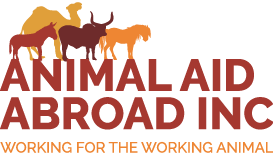MARES (ZIMBABWE) SEPTEMBER UPDATE
During September, our partner group in Zimbabwe, Matabeleland Animal Rescue and Equine Sanctuary (MARES), held successful outreach workshops for working donkeys in Jembwe, Ntabayengwe and Mabale. These workshops involved veterinary care, humane harness distribution, cart repairs and education for owners to improve donkey welfare. A total of 131 working donkeys were reached through MARES’ outreach and training days.
At all workshops, the MARES team focused on:
Proper harnessing and the difference between a good and a bad harness.
The use of padding to prevent harness injuries.
Avoiding the use of wires, as they damage donkey skin.
How to fit and take off a harness properly.
Using two swingle trees rather than one, plus how to attach the swingle trees to the cart.
Correct hitching to the cart and ideal length of traces.
Loading the cart, how to balance the load and the maximum weight a donkey can carry.
Correct length and weight of a disselboom.
Hitching two donkeys to a cart and not four.
The importance of waiting until a donkey is three years old before using him or her for work.
Correct use of whips (traditional long whip that produces a cracking sound, not a short one for inflicting pain).
The importance of donkeys for helping women perform their daily tasks, which reduces the burden on women and gives them more time for education, projects and paid work.
Healthy working animals can also transport sick people to health centres.
MARES emphasised the many benefits working donkeys offer communities, thereby encouraging villagers to treat donkeys respectfully, provide them with proper care and make their welfare a high priority.
Following is a description of each village:
Jembwe
On the 20th of September, MARES collaborated with Greenline Africa to carry out an outreach training and harness distribution workshop in Jembwe, a village in the Matabeleland North Province of Zimbabwe.
Villagers were educated on proper donkey care and welfare, how to correctly fit harnesses and hitch donkeys to carts. In total, eight carts were repaired and 16 working donkeys received humane, padded harnesses. MARES’ veterinarian also attended to any sick or injured donkeys seen on the day, which the villagers greatly appreciated.
The Jembwe outreach day was a success and a positive step towards encouraging villagers to value donkeys and improve their welfare. MARES are planning to follow up the effectiveness of this training day by assessing levels of awareness regarding donkey welfare and behavioural changes in owners.
Ntabayengwe
Also on the 20th of September, MARES collaborated with VAWZ Victoria Falls to carry out an outreach training and harness distribution workshop in Ntabayengwe, a village on the outskirts of Victoria Falls in the Matabeleland North Province of Zimbabwe. In total, 20 new humane harnesses were distributed.
Unfortunately, the team noticed that some villagers in Ntabayengwe are still using four donkeys to pull carts, rather than the recommended two, and have made alterations to the harnesses previously provided by MARES. Some owners are still overloading their carts and overworking donkeys to try and earn more money. The MARES team reinforced that using two donkeys distributes loads more evenly, ensures better welfare for working equines and reduces the risk of road accidents or injuries. They warned the offending owners that if they are caught overloading their carts or causing injuries to donkeys again, they will face criminal charges under the Cruelty to Animals Act and/or have their donkeys confiscated. MARES are also engaging with other stakeholders and officials, including the police, magistrates, public prosecutors and park rangers, to monitor and regulate the welfare of working animals in the area.
There are positive signs regarding awareness of animal cruelty in this region. For instance, a donkey owner was taken to court in August for overloading and injuring his donkeys. He was caught doing this again by the MARES team in September and was arrested the next day. This owner now faces a six-month jail sentence and his donkeys, who are currently in the care of VAWZ Zimbabwe, may be confiscated for good. MARES will continue to take a firm stand on animal cruelty laws, which help to protect the welfare of donkeys in Zimbabwe. Hopefully this case sets a precedent and sends the message that cruelty towards donkeys will not be tolerated.
Mabale
In Mabale, the MARES team saw a variety of working animals in need, including a young donkey who had been attacked by a hyena. MARES debrided his wounds, administered topical and long-lasting antibiotics and gave him tetanus and rabies vaccines. The donkey is expected to make a full recovery.
All donkeys seen in the outreach clinic were dewormed and given rabies and tetanus vaccines. Ten owners also received new harnesses and had their carts upgraded to be more donkey-friendly.
One owner was given a tee shirt to reward her for the wonderful condition her donkeys were in. By rewarding donkey owners each month, MARES believe it will incentivise more people to look after their animals properly.
All the donkey owners were very grateful for MARES’ visit and told the team no one had ever come to Mabale previously to vaccinate or deworm their donkeys.







